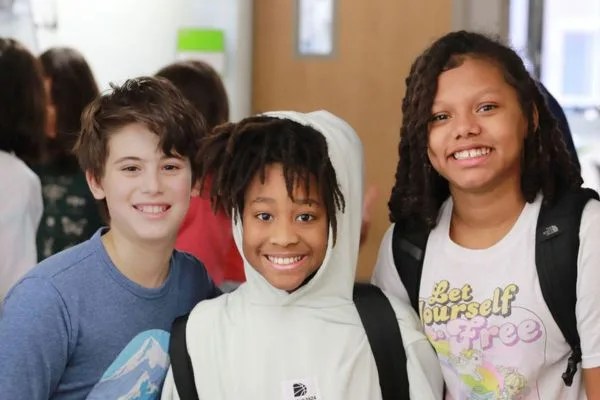Public Services And Schooling For NYC Children With Special Needs
“The more information you have to help your child, the better your child can be served,” says Vanessa Markowitz, a lawyer and advocate for families with children with special needs. So for city parents who think that their child may have some kind of problem—be it developmental, physical, or emotional—the most important thing is to take your child to a developmental pediatrician or clinical psychologist for an evaluation. Once your child is evaluated, and any delays or issues are identified, you will be much better prepared to determine how best to help.
Markowitz recommends taking advantage of New York’s early intervention programs, which provide a service coordinator to help you through the process of getting state-funded services. A program will be developed for your child that will include home-based therapies until your child turns 2 years old. At 2 years, your child may begin a centerbased preschool program.
In the instance that your child’s special needs are not identified until 3 to 5 years of age, Markowitz again recommends getting a proper evaluation from a professional. Once that evaluation has been performed, the next step is to call New York City’s Committee on Preschool Special Education, which can develop and implement an Individualized Education Program based on your child’s needs.
Maybe the most challenging aspect for families with young children with special needs happens when parents have to find a grade school that adequately addresses their child’s strengths and challenges. Markowitz encourages parents to visit schools (public and private) and attend seminars on the topic, including some held at the JCC (jccmanhattan.org) and at YAI (yai.org). Other helpful sources: the NYC Department of Education’s “Students with Disabilities Transitioning from Preschool to School-Age Program,” a free orientation; and the 1996 book, “A Parents’ Guide to Special Education in New York City and the Metropolitan Area,” by Laurie DuBos and Jana Fromer. Additionally, Advocates For Children operates a helpline for parents with questions about special education and other issues.
—Sapna Moudgil-Shah
Special Needs
Resources In NYC
If your pediatrician has determined that your child
has a special need, you shouldn’t feel alone. These local organizations
can provide you with important resources and parenting support:
Advocates For Children of New York: 151 West 30th Street, 1-866-427-6033 (helpline operates Monday-Thursday, 10 a.m. to 4 p.m.), advocatesforchildren.org.
Jewish Community
Center: 334 Amsterdam Avenue, 646-505-5700, jccmanhattan.org.
Los Ninos Services: 535
Eighth Avenue, 212-787-9700, losninos.com.
Resources for Children
With Special Needs: 116 East 16th Street, 212-677-4650,
resourcesnyc.org.
Parent-to-Parent of New York State: 75 Morton
Street, 212-229- 3222, parenttoparentnys.org.
Seaver Autism Center for
Research and Treatment at Mount Sinai School of Medicine: One
Gustave L. Levy Place, 212-241-0961, mountsinai.org.
YAI: 460 West 34th
Street, 212-273-6182, yai.org.
7th Annual Young Child Expo and Conference
Parents of both typically developing children and children with
special needs are invited to check out the 7th Annual Young Child Expo
and Conference, taking place April 9-10 at the Hilton New York Hotel.
Co-presented by the Fordham University Graduate School of Education and
Los Niños Services, the event will bring together educators, authors,
researchers and experts in early childhood development to share their
ideas with other childhood professionals as well as interested and
concerned parents. Unlike other conferences on this topic, this event
offers attendees the opportunity to learn about services, resources, and
products to help all children reach their full potential—typically
developing, special needs, gifted, talented and bilingual.
“I organized this event to
gather everyone—parents, practitioners, professionals and
experts—together in one spot to share information,” says Scott Mesh, an
early childhood psychologist and executive director of Los Niños
Services, which works to meet the developmental needs of young children
through evaluations, parent/child groups, service coordination and
training. “The workshops are designed to provide practitioners and
parents with useful, practical—not theoretical—information across a
range of topics, from general development to special education.”
The conference will
feature 25 sessions, full and half-day workshops and an exhibition hall
where parents can gather information on early childhood resources,
services and products. For more info, visit youngchildexpo.com.
—Lanchi Venator
Special Needs: A
Glossary Of Terms
For parents
considering whether their child has a special need, the terminology can
get confusing. Is he struggling with a learning delay? Does she have an
emotional disability? Is there a physical impairment that needs to be
addressed? Or is it a combination of several different issues?
So how do you sort it
all out? Well, first, with the help of qualified medical professionals.
But to get the conversation started, here’s a short glossary that might
help you better understand the different types of special needs:
DEVELOPMENTAL DISABILITY: A
long-term condition attributable to a mental impairment or a physical
impairment (or a combination of both types of impairments) that
manifests before 22 years of age. Developmental disabilities can affect
many aspects of a child’s life, including mobility, learning and
independence. Examples include Autism Spectrum Disorders, Cerebral Palsy
and Down Syndrome.
EMOTIONAL/BEHAVIORAL
DISABILITY: Interferes with a child’s ability to learn, interact
socially, build relationships and conduct himself in an ageappropriate
way. Emotional/behavioral issues can often stem from developmental or
learning ones. Examples include anxiety disorders, depression and eating
disorders.
PHYSICAL
DISABILITY: Any neuromuscular, orthopedic, cardiovascular or pulmonary
impairment. Physical disabilities can either be congenital or caused by
injury. Examples include Muscular Dystrophy, Multiple Sclerosis and
vision and hearing impairments.
LEARNING DISABILITY: Author Robbie Woliver defines a
learning disability, or LD, as “a neurological disorder that affects
processes in the brain that are involved with understanding spoken or
written language, coordinating movements, directing attention, and the
ability to learn, concentrate, listen, think, read, spell, write, or do
math calculations” (page 263, “Alphabet Kids: From ADD To Zellweger
Syndrome”). Examples include attention deficits like ADHD, dyslexia and
language disorders like aphasia and dysphasia.
—Katie Main
























